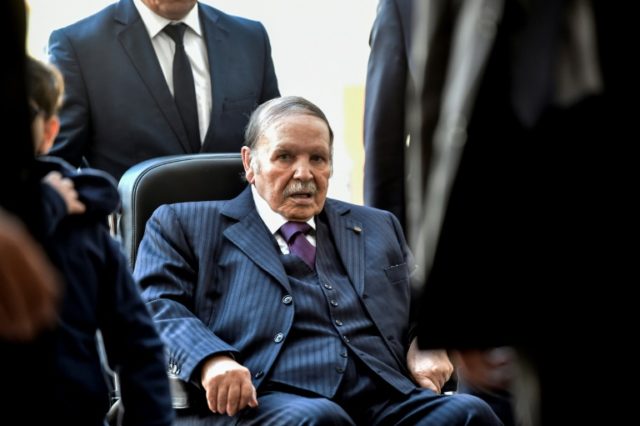Algerian President Abdelaziz Bouteflika announced on Monday that he will not run for another term after 20 years in power, satisfying the demand of thousands of protesters filling the streets for the past few weeks. Unfortunately, he also canceled the election entirely and gave no indication he is prepared to step down, so the protests continued.
Reuters reported “huge crowds” in cities across Algeria on Tuesday and a labor strike underway at the Mediterranean port city of Bajaia.
Sources told Reuters a conference on “planning Algeria’s future” will be held soon, chaired by former foreign minister and U.N. special envoy Lakhdar Brahimi. The conference will supposedly draft a new constitution and reschedule the election. The question is whether Bouteflika will pay any attention to what the conference decides.
For the moment, Bouteflika and his officials are endorsing the conference and portraying his decision to cancel the election as a noble quest to secure “competent government” to succeed him.
“I commit myself, if God grants me life and help, to transmit the duties and prerogatives of the president of the republic to the successor that the Algerian people will have freely chosen,” the reclusive 82-year-old president said in a prepared statement released to the media.
The statement cited Bouteflika’s “health and age” as reasons he would not seek a fifth term in office, oddly claiming “there has never been any question of it” even though he refused to bow out of the race until the protest movement forced his hand.
The New York Times found optimism among the protesters Monday as they focused on the good news that Bouteflika abandoned his quest for a fifth term under non-violent pressure:
On Monday night, hundreds of youths waving flags celebrated Mr. Bouteflika’s decision in Algiers. Cars honked horns and families poured out into the streets.
“It’s a very important moment because power in Algeria has never backed down,” said Benjamin Stora, a leading historian of Algeria. “Two weeks ago, this was unimaginable.
“And then, there have been no deaths. It’s a great moment in the history of the Mediterranean Basin — a president who retreats, and nobody is killed. It’s really very important.”
The international reaction was comparably upbeat, as French President Emmanuel Macron proclaimed the beginning of a new chapter in Algerian history, provided the transition period has a “reasonable duration.”
The Algerian opposition is skeptical that a transition has truly begun, grimly anticipating that Bouteflika will either proclaim all the candidates running against him unsatisfactory and postponing elections indefinitely, or stepping aside only for a handpicked successor endorsed by the same powerful interests that have been keeping him on the throne and enriching themselves while the oil-rich nation sinks deeper into general poverty.
The New York Times quoted former communication minister Abdelaziz Rahabi’s dire prognosis: “Bouteflika is not running, but he’s going to remain as president beyond April 2019. To arrogance, he adds contempt. His unhealthy obsession with power is a threat to the stability of the state and the unity of the nation.”
The Associated Press noted that younger demonstrators are particularly firm in demanding Bouteflika must resign immediately in accordance with constitutional limits on his term of office. They dismissed his swap of prime minister for a different loyalist as a ploy and see Brahimi, the nominal head of the proposed transition conference, as an out-of-touch global elitist.

COMMENTS
Please let us know if you're having issues with commenting.